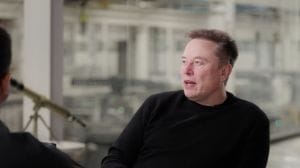123 pact will be signed very soon, say Rice, Pranab
Asserting that that there are ‘no open issues’ on nuclear deal, US said it will stand by its commitments in 123 agreement with India.

Asserting that that there are ‘no open issues’ on the nuclear deal, the United States on Saturday said it will stand by its commitments in the 123 agreement with India and the Hyde Act and that the Congressional legislation will be signed ‘very soon’.
“The President will sign the legislation passed by the US Congress very soon. He wants to do it very soon. There are administrative reasons,” US Secretary of State Condoleezza Rice told a press conference after talks with External Affairs Minister Pranab Mukherjee.
The Bill once passed has to be transmitted to the White House. It has been a busy time for last several weeks, she said explaining the reasons for the delay in signing the legislation by Bush.
Rice’s visit coming shortly after the Congress approval of the legislation sparked speculation that the 123 would come up for signing with Mukherjee on Saturday. In fact, she had rescheduled the visit by a couple of days.
“The President is looking forward to signing it very soon. The Hyde Act is completely consistent with 123 agreement, 123 agreement is consistent with the Hyde Act. The US will keep its commitments to both,” she said in reply to a question why there has been a delay and whether there were concerns on the Indian side.
“We don’t have open issues,” Rice said adding it was a matter of administrative and procedural details which would be worked out.
In his reply Mukherjee said once the President signs it into law and the process is complete ‘we will be in a position to sign the agreement on a mutually convenient date.’
“I hope it will be signed shortly.”
In their opening remarks at the joint press conference, both the leaders expressed satisfaction over their talks and the state of bilateral relations between the two countries.
“India-US relations are today better than ever before and have transformed into a truly strategic partnership,” Mukherjee said.
Reciprocating his feelings, Rice said the two countries were executing the vision of Prime Minister Manmohan Singh and President Bush for closer and deeper relations between the two countries.
“The civil nuclear initiative is a historic agreement and historic achievement. The US will stand by its commitments,” she said adding the US cooperated with India in the IAEA in view of its track record in non-proliferation.
“It gives us a new platform for cooperation in energy matters to develop civil nuclear power. We have opened new channels with India in areas of technology, agriculture, education and defence cooperation.”
She said it was now one of the broadest relations US enjoyed with India. She also hoped that whoever succeeds Bush as President (after the November elections) would continue to build on the ‘strongest relationship’ that the two leaders initiated in 2005.
Mukherjee said India-US relationship today had more than bilateral significance and the two countries were working together on a wide range issues including climate change and on UN Security Council.
He said the vision of this relationship chalked out by Singh and Bush would serve the interest of not only India but the people of the region and the world. And as true democracies with shared values, both looked forward to further transforming the relationship.
Describing the NSG waiver as an ‘enabling provision’, Mukherjee said the exemption allows NSG countries to have civil nuclear trade with India and that such cooperation can fructify through bilateral arrangements which need to be finalised.
On the question of reprocessing facilities, he said the issue will be addressed when India enters into bilateral arrangements. “How we will respond to bilateral arrangements, that will depend on the contracting parties,” Mukherjee said.
Underlining that the Indo-US relations go beyond the civil nuclear deal, Rice said: “It (the deal) gives us a new platform for cooperation in energy matters to develop civil nuclear power. We have opened new channels with India in areas of technology, agriculture, education and defence cooperation.”
“The civil nuclear initiative is a historic agreement and historic achievement. The US will stand by its commitments,” she said, adding the US cooperated with India in the IAEA in view of its track record in non-proliferation.
Describing the Indo-US ties as ‘one of the broadest relations’ between the two countries, Rice hoped that whoever succeeds Bush as President (after the November elections) would continue to build on the ‘strongest relationship’ that Singh and Bush initiated in 2005.
“India-US relations are today better than ever before and have transformed into a truly strategic partnership,” Mukherjee said.
“As we looked back with satisfaction at the transformation of India-US relations, we are convinced of the future prospects of this relationship,” he said while noting that their ties had more than bilateral significance with both working together on a wide range issues including climate change and on UN Security Council.


- 01
- 02
- 03
- 04
- 05





























